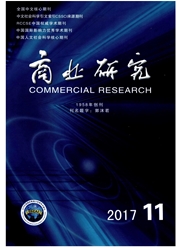

 中文摘要:
中文摘要:
摘要:以序贯互惠模型为基础,为大股东和经理植入互惠偏好.在完全信息条件下,检验大股东掏空和经理自利的影响因素,探讨互惠对双重代理问题的激励效应.研究发现,如果大股东首先实施掏空行为,经理会选择自利行为.如果大股东放弃掏空,并且经理的互惠敏感性足够大时,经理会放弃自利行为.当经理的互惠敏感性较小时,大股东掏空和经理自利现象将同时出现.另外,当经理具有足够大的互惠敏感性时,大股东放弃掏空是最合理的均衡.研究结果表明.约束大股东行为和基于经理互惠动机优化公司激励机制是改善公司治理效率的关键.
 英文摘要:
英文摘要:
Under the condition of complete information, this paper investigates the determinants of tunneling and managerial entrenchment and discusses the incentive effects of reciprocity on dual principal agent problem, considering the reciprocal preferences of large shareholders and managers and based on sequential reciprocity model. The findings indicate that the manager will take self-interested behavior if the large shareholder takes tunneling behavior. If the large shareholder gives up this kind of behavior, the manager with a high enough reciprocity sensitivity will give up self-interested behavior as well. However, when the manager has a low reciprocity sensitivity, tunneling and managerial entrenchment will arise simultaneously. In addition, when the reciprocity sensitivity of the manager is high enough, the large shareholder taking this behavior will be the plausible equilibrium. The results prove that the key to improve corporate governance is to restrain the large shareholder from the tunneling behavior and to optimize corporate incentive mechanism in the aspect of manager's reciprocity motivation.
 同期刊论文项目
同期刊论文项目
 同项目期刊论文
同项目期刊论文
 期刊信息
期刊信息
